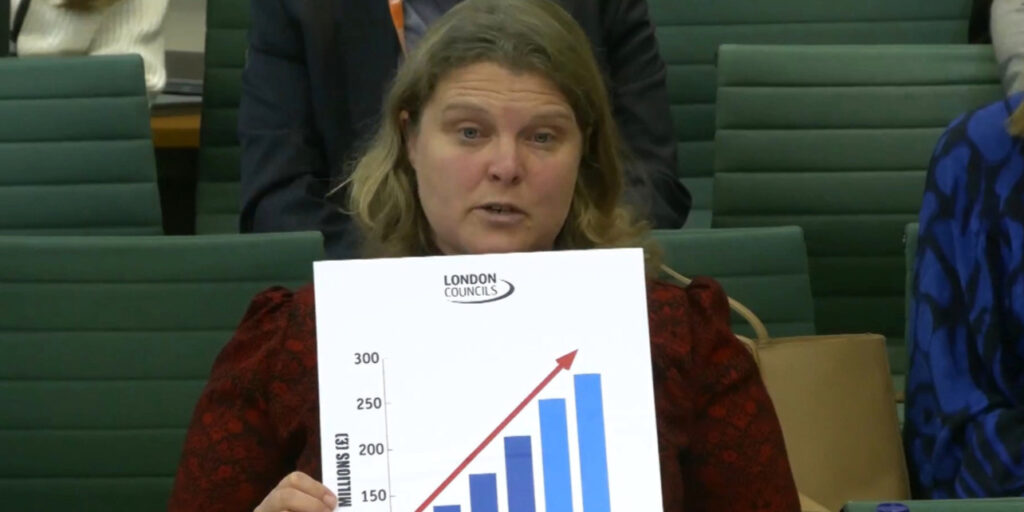London’s borough councils have issued a stark warning that spiralling costs linked to homelessness could push some local authorities to the brink of bankruptcy.
In 2024-25 alone, boroughs are projected to overspend by £330 million on homelessness support, according to the latest figures from London Councils, the cross-party organisation representing the capital’s local authorities.
The group describes the homelessness crisis as the biggest single threat to council finances. This year, boroughs collectively spent £900 million tackling homelessness – a staggering 60 percent more than their original £600 million budget.
Much of this increase is being driven by the rising number of families placed in temporary accommodation, with councils now spending around £4 million every day just to house people.
London Councils warns that the funding gap between central government subsidies and the actual cost of accommodation has grown sharply in recent years, jumping from £96 million to £140 million.
Councillor Grace Williams, executive member for housing and regeneration at London Councils, said homelessness support is becoming financially unsustainable for local authorities.
She explained that councils have a legal obligation to provide housing for people at risk of homelessness, but are being overwhelmed by rising demand and soaring rental costs.
If the current trend continues, Williams cautioned, more boroughs could effectively declare bankruptcy by issuing Section 114 notices – the legal step that halts non-essential spending. She stressed that such outcomes would threaten essential local services and ultimately lead to greater public spending as emergency measures are triggered.
Currently, a record 126,000 households across England are living in temporary accommodation arranged by local councils. Of those, more than 183,000 people – including over 160,000 children – are living in such conditions in London alone. That equates to roughly one in every 50 residents of the capital.
The shortage of affordable housing and the withdrawal of landlords from council schemes are compounding the issue.
Many landlords are choosing to sell their properties or re-let them at higher rents on the open market. Since 2016, approximately 45,000 affordable homes have been lost from London’s private rental sector, forcing councils to rely more heavily on expensive short-term options, including hotels.
London Councils is now calling on the government to take urgent action in the upcoming June spending review.
The group is pressing ministers to provide emergency funding to stabilise council budgets and to raise Local Housing Allowance (LHA) rates, which have failed to keep pace with rising rents. They are also asking that LHA rates increase annually in line with inflation.
Furthermore, the group says long-term investment in affordable housing is essential. Grant funding must be expanded to allow councils to build more genuinely affordable homes and reduce reliance on temporary accommodation.
Peers in the House of Lords addressed the issue this week. On behalf of the government, Baroness Sharon Taylor acknowledged that homelessness levels remain too high and that the cost of temporary accommodation is placing huge pressure on local authorities.
She confirmed that an additional £233 million has been allocated to councils, bringing total government funding for homelessness this year to nearly £1 billion. She also noted that the deputy prime minister is chairing an inter-ministerial group to develop a national strategy aimed at delivering long-term solutions.
London Councils is urging government to work closely with local authorities to resolve the crisis and ensure vulnerable families are not left without support.


